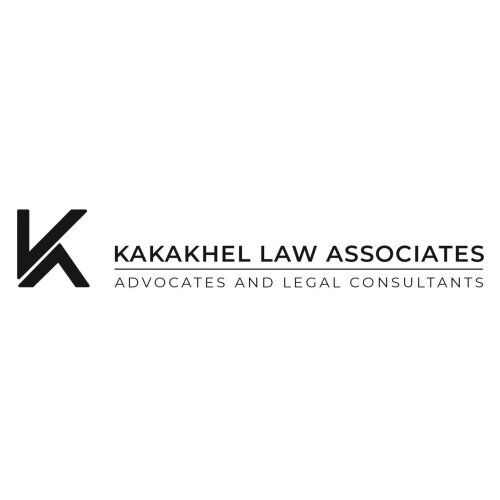Best Banking & Finance Lawyers in Peshawar
Share your needs with us, get contacted by law firms.
Free. Takes 2 min.
List of the best lawyers in Peshawar, Pakistan
About Banking & Finance Law in Peshawar, Pakistan
Banking and finance law in Peshawar, Pakistan, encompasses the regulation of financial services, banking institutions, and the issuing, trading, and settlement of financial securities. The sector is critical to Peshawar's economy, with a mix of local and international banks operating within its boundaries. Pakistan's banking laws are influenced by both local statutory regulations and international financial standards. This dynamic and growing sector requires adherence to stringent compliance requirements, emphasizing transparency and accountability.
Why You May Need a Lawyer
There are various scenarios where individuals or businesses might seek legal advice in the banking and finance sector. Some common situations include:
- Commercial banking transactions and the documentation thereof.
- Resolution of disputes related to bank loans or payment defaults.
- Addressing issues of non-compliance with banking regulations.
- Advising on mergers or acquisitions of financial institutions.
- Legal counsel for startups seeking financing options.
- Assistance with international financial transactions and compliance.
- Guidance for navigating debt restructuring or insolvency proceedings.
- Addressing consumer rights issues related to banking services.
- Reviewing and negotiating financial contracts and agreements.
Local Laws Overview
Peshawar, being part of Pakistan, is governed by national banking and finance regulations with regional applications. Key legislative frameworks include:
- Banking Companies Ordinance, 1962: Governs the regulation and control of banking companies, including their operation, licensing, and management.
- State Bank of Pakistan Act, 1956: Establishes the regulatory authority of the State Bank of Pakistan over all financial institutions and monetary policy.
- Financial Institutions (Recovery of Finances) Ordinance, 2001: Facilitates speedy recovery of finances to protect lenders' rights.
- Anti-Money Laundering Act, 2010: Provides guidelines and regulations to prevent money laundering and to promote transparency in financial transactions.
Additional local regulations may also apply, especially those that align with the tribal laws and cultural norms specific to Peshawar and Khyber Pakhtunkhwa.
Frequently Asked Questions
What is the role of the State Bank of Pakistan in regulation?
The State Bank of Pakistan serves as the central bank and is responsible for regulating the monetary and credit system of the country, overseeing banking operations, and ensuring the stability of the national financial system.
How can I resolve a banking dispute with my bank in Peshawar?
Initially, contact your bank’s dispute resolution center to attempt a resolution. If this proves ineffective, you may file a complaint with the Banking Mohtasib or seek legal counsel for further action.
What are the common grounds for banking litigation?
Common grounds include disputes over loan agreements, unauthorized transactions, breach of contract, fraud, and non-compliance with banking regulations.
How are banking loans secured in Pakistan?
Loans can be secured using various forms of collateral, including property, securities, and guarantees. The terms depend on the lender's policies and the borrower's creditworthiness.
What should I do if my business is facing insolvency?
Seek professional legal and financial advice to explore restructuring options or file for insolvency under the appropriate legal framework, such as the Companies Ordinance or the Corporate Rehabilitation Act.
How can foreign investors engage with the Peshawar banking sector?
Foreign investors are advised to seek legal counsel to understand local investment laws, restrictions, and navigate the regulatory framework efficiently.
Are digital banking and cryptocurrencies regulated?
Digital banking is regulated under existing banking laws, while cryptocurrencies are not yet fully regulated. The State Bank of Pakistan has issued guidance and warnings about the risks associated with virtual currencies.
What are my rights if I’m a victim of banking fraud?
As a victim, you can report the fraud to your bank, the local police, and also file a complaint with the Banking Mohtasib Pakistan to seek resolution.
Is Islamic banking available in Peshawar?
Yes, Islamic banking is widely available in Peshawar, and it adheres to Sharia-compliant financial principles, offering services like Mudarabah, Ijarah, and Murabaha.
What are the penalties for non-compliance with banking laws?
Penalties range from fines and sanctions to imprisonment, depending on the severity and nature of the violation.
Additional Resources
Here are some resources and organizations that might be helpful:
- State Bank of Pakistan: Primary regulatory authority for banking.
- Banking Mohtasib Pakistan: Addresses complaints and disputes between consumers and banks.
- Pakistan Bar Council: Can provide legal advice and a directory of certified lawyers.
- Ministry of Finance, Pakistan: Offers information on financial regulations.
- Pakistan Banks' Association: Industry body representing the banking sector.
Next Steps
If you require legal assistance in banking and finance in Peshawar, consider taking the following steps:
- Identify your specific legal needs and gather all relevant information and documents before consulting with a lawyer.
- Contact the Pakistan Bar Council or a reputable law firm to find a qualified lawyer specializing in banking and finance law.
- Schedule consultations with potential legal representatives to discuss your case and understand their approach and fees.
- Ensure the lawyer is familiar with both national and local laws applicable to your issue.
- Stay informed and involved throughout the legal process to make decisions that best suit your situation.
Lawzana helps you find the best lawyers and law firms in Peshawar through a curated and pre-screened list of qualified legal professionals. Our platform offers rankings and detailed profiles of attorneys and law firms, allowing you to compare based on practice areas, including Banking & Finance, experience, and client feedback.
Each profile includes a description of the firm's areas of practice, client reviews, team members and partners, year of establishment, spoken languages, office locations, contact information, social media presence, and any published articles or resources. Most firms on our platform speak English and are experienced in both local and international legal matters.
Get a quote from top-rated law firms in Peshawar, Pakistan — quickly, securely, and without unnecessary hassle.
Disclaimer:
The information provided on this page is for general informational purposes only and does not constitute legal advice. While we strive to ensure the accuracy and relevance of the content, legal information may change over time, and interpretations of the law can vary. You should always consult with a qualified legal professional for advice specific to your situation.
We disclaim all liability for actions taken or not taken based on the content of this page. If you believe any information is incorrect or outdated, please contact us, and we will review and update it where appropriate.
Browse banking & finance law firms by service in Peshawar, Pakistan
Peshawar, Pakistan Attorneys in related practice areas.









